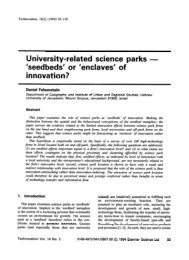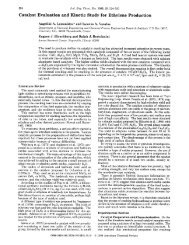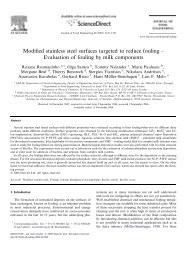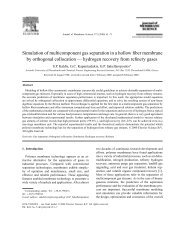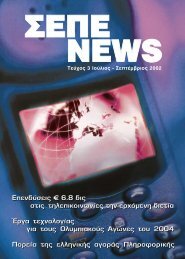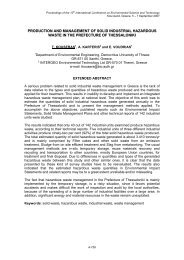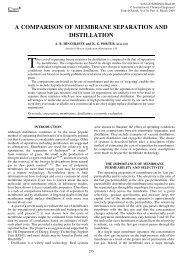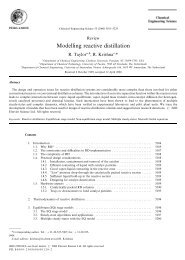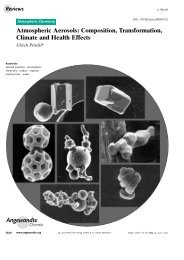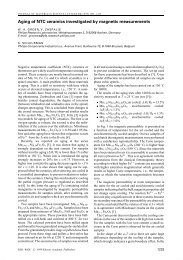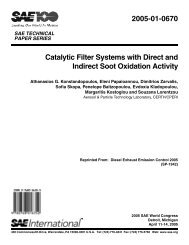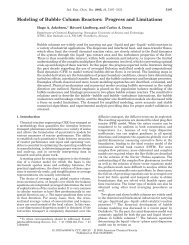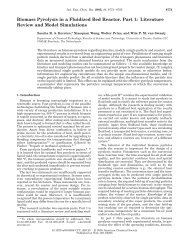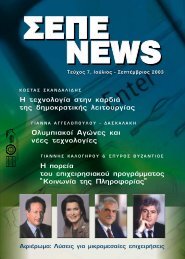RTD info - European Commission - Europa
RTD info - European Commission - Europa
RTD info - European Commission - Europa
Create successful ePaper yourself
Turn your PDF publications into a flip-book with our unique Google optimized e-Paper software.
I N T E R N E T <strong>RTD</strong> <strong>info</strong> Special Science and Media September 2002<br />
29<br />
Information for developing<br />
countries<br />
‘Those who could benefit most from science and technology are<br />
also those with the least access to <strong>info</strong>rmation on these subjects.’<br />
That is the view of the organisers of SciDev.Net, a website<br />
launched in December 2001 and financed by the Department for<br />
International Development (DFID – UK), the Research Centre for<br />
International Development (CR – Canada) and the Swedish<br />
Agency for International Development Co-operation (ASDI). The<br />
site is run by David Dickson who used to work for the British<br />
magazine Nature, and presents dossiers combining news and<br />
more in-depth <strong>info</strong>rmation on subjects ‘at the science/technology/sustainable<br />
development interface.’<br />
While it is no doubt essential to report on such subjects, isn’t the<br />
priority to provide access to basic scientific <strong>info</strong>rmation for<br />
researchers and engineers in these countries, something they are<br />
prevented from doing by the high cost of subscribing to ‘primary’<br />
journals? This is one of the arguments put forward by scientists<br />
who have been calling for several years now for free and universal<br />
access to fundamental articles (see Web Utopia?). The same<br />
thinking is behind the launch, by the UN Secretary General in<br />
September 2000, of the Health InterNetwork initiative, with the<br />
aim of providing equal access to health <strong>info</strong>rmation. It is managed<br />
by the World Health Organisation and supported by a group<br />
of international organisations, NGOs and private foundations.<br />
The Internet portal started up in 2002, placing on-line and free<br />
of charge the content of more than 2 000 medical journals, databases,<br />
<strong>info</strong>rmation systems and other tools, for use by universities,<br />
medical schools, research centres and other public institutions<br />
in some 70 developing countries. The initiative also aims to<br />
establish or improve Internet access for public or private nonprofit-making<br />
organisations in these countries.<br />
Traditional publishers are now beginning to pay attention to<br />
such initiatives, as witnessed by the electronic forums opened<br />
by the two most prestigious general science journals, Science<br />
in the United States and Nature in the United Kingdom.<br />
‘Changes to the system of academic publishing are inevitable<br />
and necessary,’ admits Declan Butler, Europe correspondent<br />
with Nature and organiser of the forum. He believes that ‘all<br />
those involved in scientific <strong>info</strong>rmation are now living in a<br />
phase of experimentation.’<br />
#SciDev.Net: www.scidev.net/<br />
#Health InterNetwork: www.healthinternetwork.org<br />
(1) See <strong>RTD</strong> <strong>info</strong> no.31, Trouble in cyberspace.



